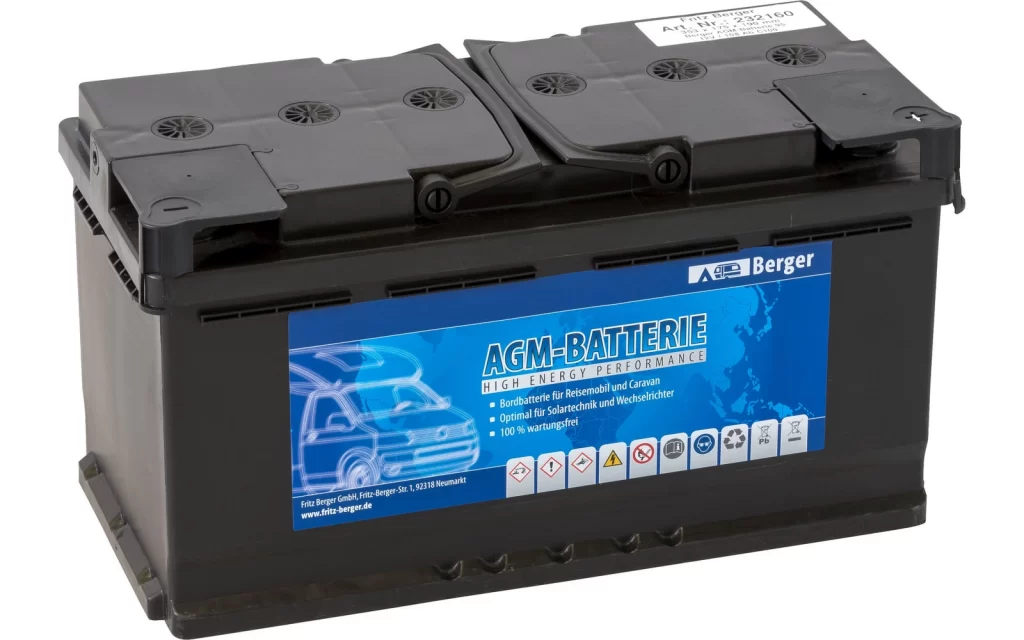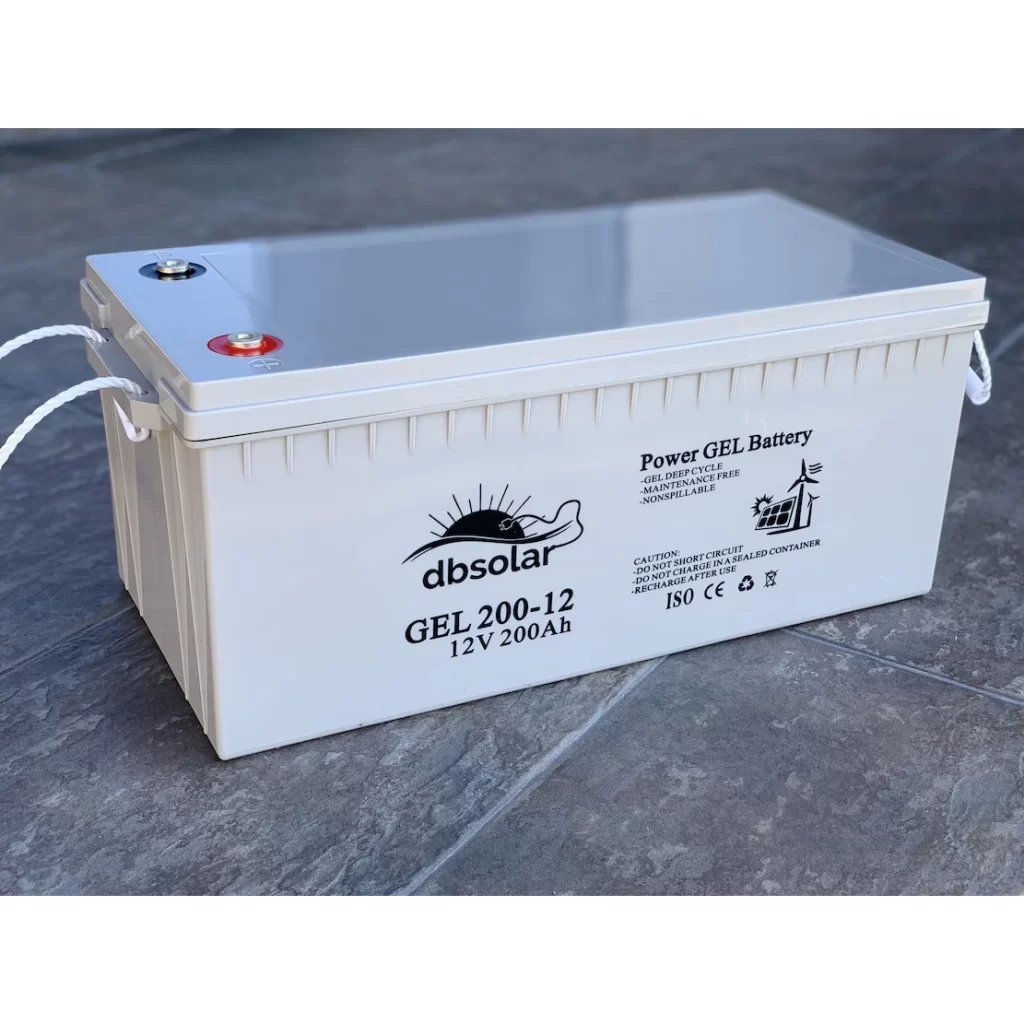If last week we analyzed the characteristics of Lithium-ion solar batteries, today it is the turn of AGM and Gel solar batteries.
AGM solar batteries
AGM (Absorbent Glass Mat) or lead-acid solar batteries became known in the 1980s. At that time they were used in aircraft and vehicles, but later they also started to be produced for renewable energy storage.
Unlike other types of solar cells, the acid in AGM batteries is sealed by a fiberglass support that does not allow it to leak.

This type of batteries do not require maintenance and have a fairly long life. In addition, they are resistant to low temperatures, but very sensitive to high temperatures and overload due to the fact that they are sealed.
Advantages of AGM solar batteries
- They have a high charging capacity;
- Their acid cannot leak due to sealing technology;
- They have a longer lifespan compared to flooded batteries;
- They are resistant to low temperatures, vibrations, and water;
- Allow fast charging and discharging, with low internal resistance;
- They do not require maintenance;
- They need charging at long intervals, with a very low discharge rate: between 1 and 3% per month.
Disadvantages of AGM solar batteries
- Their manufacturing cost is higher than flooded batteries, but lower than gel ones;
- They are very sensitive to overload;
- Their charging voltage should be limited to a maximum of 14.1 – 14.4 volts at 20℃
AGM Solar Batteries: Tips for Use and Maintenance
The lifespan of AGM solar batteries can be extended if they are not allowed to discharge more than 60% before recharging.
Gel Solar Batteries
In the last 30 years, gel solar batteries have been used in multiple industries, offering a safer and more viable alternative to acid batteries.
This type of batteries does not require special maintenance and does not necessarily need to be stored in an upright position. This is because the electrolyte mixture takes place in a gel-based substance, reducing electrolyte evaporation.
Additionally, gel solar batteries are very safe. The gases produced during charging are transformed into liquids inside the battery, preventing their release.

Advantages of solar gel batteries
- They do not require maintenance, but their temperature must not exceed 80℃;
- Because they do not leak, they pose no risk of sulfuric acid burns. Thus, they are much safer than other types of batteries;
- They can also be recharged in places with poor ventilation as they do not emit hydrogen vapors.
Disadvantages of solar gel batteries
- Their cost is higher compared to other batteries;
- Their lifetime is shorter compared to the other types of batteries;
- They have a high sensitivity to high temperatures.


 Back to articles
Back to articles